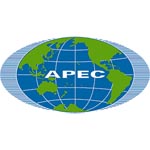Entering adulthood, APEC has reached a crucial milestone
 Singapore - The Asia-Pacific Economic Cooperation (APEC) forum, dedicated to fostering growth through trade liberalization, has just grown out of its teenage years.
Singapore - The Asia-Pacific Economic Cooperation (APEC) forum, dedicated to fostering growth through trade liberalization, has just grown out of its teenage years.
Marking its 20th anniversary in 2009, the forum of 21 Pacific Rim economies - including the United States, China, Japan and Russia - has entered adulthood and is reaching a critical point as its leaders meet for their annual summit in Singapore at the weekend.
The summit comes "at a challenging time," Singapore Second Minister for Foreign Affairs Raymond Lim said as the global economy has just started to emerge from a recession and economies worldwide have to orient themselves in the post-crisis environment.
"Nevertheless, the crisis has provided an opportunity for APEC to define its role more sharply and to inject renewed impetus to its work," the minister said, noting that APEC would make its contributions to address global macroeconomic imbalances and keep markets open.
Measures to spur a lasting economic recovery would rank high on the summit agenda - going along with the meeting's theme, "sustaining growth, connecting the region" - as APEC leaders were expected to give their view on how long they plan to continue stimulus policies.
"Economic stimulus has to be managed in a very careful sort of way," Singapore Prime Minister Lee Hsien Loong said at a press conference ahead of hosting the summit.
"You cannot just withdraw it suddenly; otherwise, you will create new problems," Lee said, suggesting that a joint statement by the APEC leaders - scheduled to be released Sunday at the end of the two-day meeting - might support maintaining stimulus measures until a sustained economic recovery had been secured.
Another topic to be discussed would be the world trade talks launched in Doha in 2001, Lee said, as "the last 5 or 3 per cent" of the deal still had to be completed.
"Every day that you do not settle the agreement, it gradually melts away," Lee said.
The APEC leaders, Lee said, hoped "to make some announcement to encourage movement" toward a speedy completion of the global trade deal.
The spotlight in Singapore, however, is to be on US President Barack Obama, who has centred his first official Asia trip around the APEC summit.
Obama was also scheduled to meet leaders of the Association of South-East Asian Nations (ASEAN) Sunday for the inaugural US-ASEAN summit in the city-state.
For APEC, which accounts for about half the world's gross domestic product, the Singapore summit coincides with US efforts to intensify its engagement in the Asia-Pacific.
"APEC is strategically important to the US because it is a primary venue for multilateral engagement with the Asia-Pacific on economic and other key interests," the acting senior US official for APEC, Kurt Tong, said, noting that there had been "a proliferation of pan-Asian institutions."
As APEC enters its third decade, other groups have been established in the region, namely ASEAN+3 - consisting of the 10 ASEAN members plus China, Japan and South Korea - and the East Asia Summit, involving ASEAN+3, India, Australia and New Zealand.
Moreover, Japanese Prime Minister Yukio Hatoyama recently spoke of his vision for an "East Asian Community" while Australian Prime Minister Kevin Rudd outlined his idea for an "Asia-Pacific Community," both modelled on the European Union.
But for the United States, it is APEC that "on the economic front, ... provides the best and most established regional mechanism for practical cooperation and action," Tong said, adding "that truly effective regional institutions must include members from both sides of the Pacific."
"APEC 2009 will mark a critical milestone in how APEC positions itself for the future," Lim said.
But as long as the forum focuses on its guiding principles to promote free and open trade in the region, "APEC will remain the premier vehicle for regional cooperation and the centrepiece of the regional architecture," he said. (dpa)